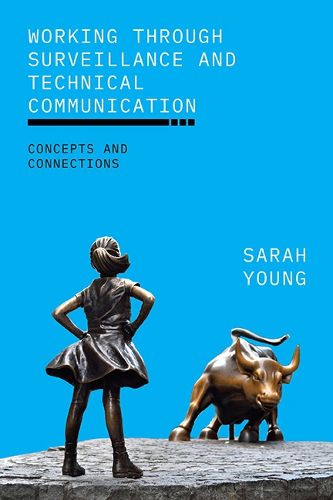Readings Newsletter
Become a Readings Member to make your shopping experience even easier.
Sign in or sign up for free!
You’re not far away from qualifying for FREE standard shipping within Australia
You’ve qualified for FREE standard shipping within Australia
The cart is loading…






Addresses contemporary surveillance practices and examines technical communicators' roles in carrying them out.
What is surveillance, and why should we care? Why are those who use technology susceptible to being both agents and targets of contemporary surveillance practices? Working Through Surveillance and Technical Communication addresses these questions, discussing what it means to engage in surveillance, examining why this participation may be problematic, and offering entry points into assessing one's ethical and socially just involvement with surveillance. Further, the book suggests ways to resist both individually and collectively, and it offers pedagogical entry points for those looking to talk about surveillance with others. Led by the central questions, "How are technical communicators also surveillance workers?" and "Why does this matter for technical communication and surveillance scholarship?" the text uses the example of Edward Snowden to illustrate how technical communicators and surveillance workers exist on an often-overlapping range. Sarah Young highlights the potentially discriminatory nature of surveillance and argues that recognizing and evaluating surveillance in is increasingly important in a data-driven world.
Open Access funded by Erasmus University Rotterdam Library in support of open science initiatives. It can be found in the SUNY Open Access Repository at https://soar.suny.edu/handle/20.500.12648/8546.
$9.00 standard shipping within Australia
FREE standard shipping within Australia for orders over $100.00
Express & International shipping calculated at checkout
Addresses contemporary surveillance practices and examines technical communicators' roles in carrying them out.
What is surveillance, and why should we care? Why are those who use technology susceptible to being both agents and targets of contemporary surveillance practices? Working Through Surveillance and Technical Communication addresses these questions, discussing what it means to engage in surveillance, examining why this participation may be problematic, and offering entry points into assessing one's ethical and socially just involvement with surveillance. Further, the book suggests ways to resist both individually and collectively, and it offers pedagogical entry points for those looking to talk about surveillance with others. Led by the central questions, "How are technical communicators also surveillance workers?" and "Why does this matter for technical communication and surveillance scholarship?" the text uses the example of Edward Snowden to illustrate how technical communicators and surveillance workers exist on an often-overlapping range. Sarah Young highlights the potentially discriminatory nature of surveillance and argues that recognizing and evaluating surveillance in is increasingly important in a data-driven world.
Open Access funded by Erasmus University Rotterdam Library in support of open science initiatives. It can be found in the SUNY Open Access Repository at https://soar.suny.edu/handle/20.500.12648/8546.